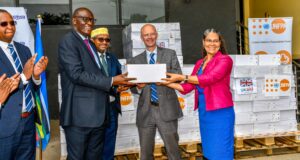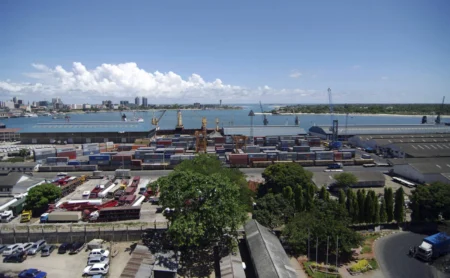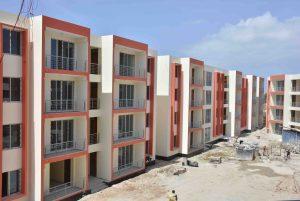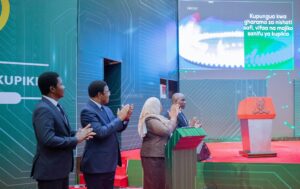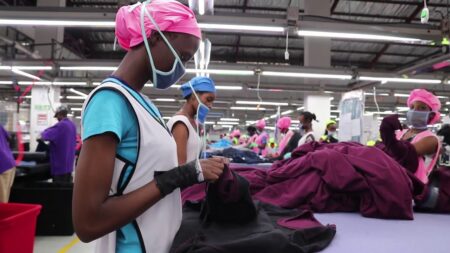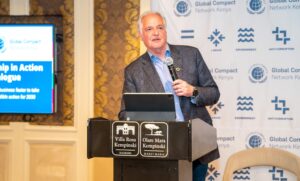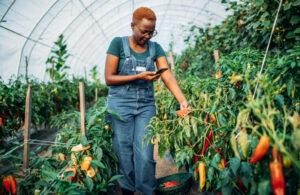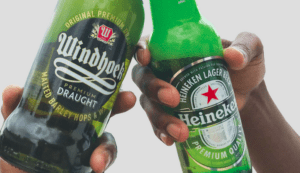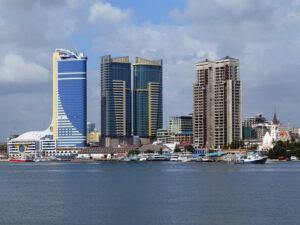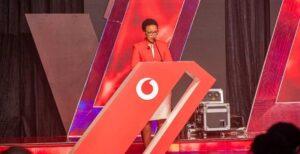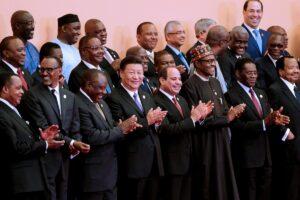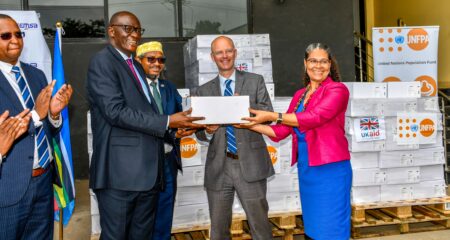- AIM Global Foundation pushes for stronger Gulf-Africa trade partnerships
- Investment opportunities in South Sudan’s emerging gold industry
- Family planning drive in Kenya gets 450,000 self-injectable contraceptive doses from UK
- AfDB commits $2 billion to revolutionise clean cooking in Africa, save forests
- The harsh realities of family laws for African women revealed
- Kenyan home buyers shift preferences, seek affordable housing despite market downturn
- How startup Yeeo is shaping the future of business contacts with eco-friendly innovation
- Stakeholders in Nairobi seek to unlock Kenya’s green jobs potential
Industry and Trade
- Al Shezawi, President of AIM Global Foundation, asks entrepreneurs to seize promising investment opportunities between the Gulf countries and African nations.
- Al Shezwi who is also President AIM Congress says these collaborations will be through enhancing joint work and establishing economic partnerships.
- Also discussed in Bahrain was best practices and experiences from Africa and the Arab region on how to stimulate and unleash entrepreneurship, joint investments, and trade.
The AIM Global Foundation has called for enhanced trade partnership between the Gulf nations and Africa during the fifth edition of the 2024 World Entrepreneurs Investment Forum in Bahrain.
This call comes at a time when the AIM Global Foundation is increasingly engaging the world’s entrepreneurs, urging enhanced international cooperation by formulating and developing effective promotion strategies and opening new horizons for viable investments.
Overall, the AIM Global Foundation seeks to anticipate the future, support sustainable investment partnerships and initiatives, and create …
- Kenyan home buyers are looking for cheaper houses despite an overall drop in real estate property prices
- In addition, there was a slight activity increase in the high-market section, to account for 17 per cent in quarter four from 15.2 per cent in the third quarter.
- These variations underscore the segmented nature of the housing market, influenced by both region and house type.
Kenyan home buyers sought cheaper houses despite an overall drop in real estate property prices throughout last the year, according to a new report.
The latest Kenya Bankers Association (KBA) Housing Price Index shows that the low market segment (Affordable Housing) recorded high demand in the last quarter, accounting for 62.3 per cent.
The shift to the low end was a steep rise compared to 48 per cent recorded in the previous quarter.
Price reduction came amidst challenges like high inflation and a weak shilling, which reduced …
- Firewood is responsible for killing at least 33,000 people yearly in Tanzania.
- A person who is exposed to firewood smoke for an hour has similar health risks as a person who smokes between 200 and 300 cigarettes.
- Tanzania is estimated to lose nearly 470,000 hectares of forest each year due to the rampant acts of cutting down trees for charcoal and firewood.
The use of clean cooking energy is no longer a luxurious thing. It is a necessity, Tanzania’s President Samia Suluhu Hassan noted recently during the launch of the 10-year National Clean Cooking Strategy in Dar es Salaam. However, this assertion comes at a precedented moment when women such as Magreth are seeking alternative energy.
“We ask President Samia to help us in any way possible with alternative ways of cooking such as gas,” says Magreth Ngole, a resident of Njombe and a frequent user of firewood for cooking …
Smartphone adoption in Africa remained sluggish in the latter part of the last decade. This is beginning to change as a combination of pandemic-driven demand for better connectivity and improved affordability of smartphones drive uptake.
According to a report by GSAM, by the end of 2020, 495 million people subscribed to mobile services in Africa, representing 46 per cent of the region’s population, an increase of almost 20 million in 2019. It is estimated that 615 million people in sub-Saharan Africa will subscribe to mobile services by 2025, equivalent to 50 per cent of the region’s population.
- Utilizing the development of mobile digital technologies can assist farmers in gaining access to essential data and information needed to solve certain farming management systems and underlying constraints.
- It is estimated that 615 million people in sub-Saharan Africa will subscribe to mobile services by 2025, equivalent to 50 per cent of the
The regulator said retailers would be free to allocate up to 10% of chilled space/refrigerators in each beverage cooler owned by NBL or Distell Namibia in any on- and off-consumption outlet in Namibia.
“This allocation right will apply only to products manufactured or packaged in Namibia by Namibian-owned and Namibian-controlled companies. The existing NBL commercial policy must be amended, and the merged entity will educate its employees and inform the market of the new changes to its commercial policy,” the conditions read.
The commission said it identified entry barriers as a concern, particularly the ability of small Namibian companies to enter the market.
NBL’s commercial policy prohibited retailers from placing other products in NBL-branded refrigerators. After the merger, the likelihood of this policy being enforced could deter or limit the entry of Namibian-owned and Namibian-controlled undertakings into the market.…
The EABC noted that foreign direct investments from the US. to Tanzania stood at US$1.5 billion in 2019, a 5.2 per cent increase from 2018. Tanzania is followed by Kenya – which received US$353 million in the same year – followed by Uganda US$42 million, Rwanda (US$11 million) and Burundi, which managed to attract US$1 million in the same year (2019).
Tanzania has managed to secure the US. as a development partner and as a viable investment in potential sectors such as mining and agriculture. President Samia has worked to give the investment landscape 180 shifts, particularly enhancing the domestic and international confidence in Tanzania’s business climate.
Over the past years, agricultural produce, minerals and textiles have covered most of the goods exported to the US. However, there are other avenues of potential investment in Tanzania, especially in oil and gas, real estate, manufacturing and telecommunications.…
- Recognizing the vital role of education, students and their families across sub-Saharan Africa have started using educational technologies to supplement formal schooling during times of disruption.
- Mobile laboratories (mobile labs) bring scientific tools and techniques right to the school parking lot, allowing students access to experiences far beyond what many schools can provide.
- In Chad, a mobile school offers nomad children hope. Chad’s nomads make up almost a tenth of the country’s population and many children in the community hardly get an education.
Countries and organizations are taking perceptible actions for Inclusive Education to succeed internationally as well as in individual African countries. Internationally, countries adopted several treaties in support of Inclusive Education. Inclusion has become a global issue while in different countries we can find many stated intentions and written policies to move towards its achievement.
In Africa, a few examples include South Africa’s Department of Education White Paper …
Vodacom Tanzania fell Sh103.8 billion short of its second quarter target and the company blames it on what it says is ‘the impact of mobile money transaction levies.’
In its latest annual report, Tanzania’s largest telecom, subscription wise, said compared to the same period last year, its second quarter earnings this year, that Sh956.515 are over one percent lower.
Not only was the income low, but the company had projected much higher earnings this year in excess of Sh1.06 trillion. However, much to the dismay of its investors and stakeholders, the company was almost 10 percent off target in this year’s second quarter earnings.
So what happened, how did the largest telecom company fall so far off its projections? And no in just one area, the company’s annual report concedes that Vodacom suffered drop of revenue in at least four of its top six revenue channels.
Vodacom, the only publicly …
While the hospitality sector was one of the most hit during the pandemic, it has also been among the fastest to rebound on the African continent.
According to a recent W Hospitality survey, hotel chains signed 447 transactions in 2021, and the number of rooms (80,291 rooms) added to their development pipeline is nearly the same to 2019
Marriott Hotel & Resorts, Hilton, and Radisson Blu are the most active hotel brands in terms of on-site construction.
According to the report, the on-site construction period is often beneficial to hotel chains and many others involved – a new hotel implies more jobs, tax money for the government, increased economic activity in the value chain, more advertising spending for the location, and so on.…


